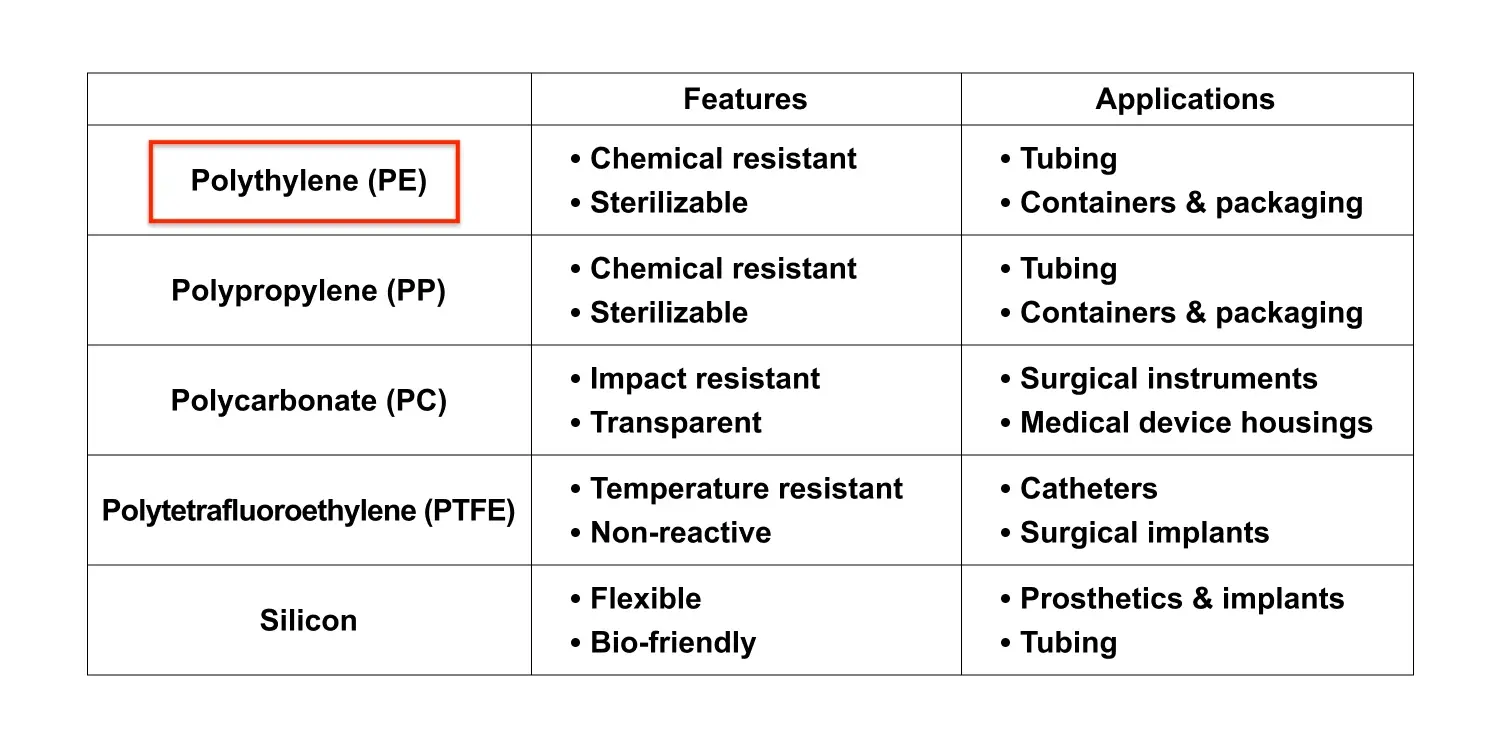From plastic medical tape and IV bags to medical plastic wrap and orthopedic implants, the use of plastic in the medical field is critical to today’s healthcare landscape. Discover why medical plastics are essential to modern patient care and medicine.
What are medical plastics?
Known for being adaptable and durable, medical grade resins are polymers designed specifically for healthcare products and settings.
Plastic used in hospitals must be medical grade, but what does medical grade mean?
This means the materials don’t cause harmful reactions, can be sterilized, and can meet strict regulations to ensure patient safety. So, how do you know if plastic is medical grade? There are two sets of standards manufacturers rely on:
- United States: The U.S. Food and Drug Administration (FDA) oversees materials used in medical devices, including plastics, through Title 21 of the Code of Federal Regulations (CFR 21). Through this, the FDA monitors labeling, surgical devices and more.
- Internationally: Issued by the International Organization for Standardization, ISO 10993 is a series of international standards that evaluates the biological risks of medical plastics. It’s divided into over 15 parts, including everything from overall testing and evaluations to skin irritations, toxicity testing and reproductive effects.
When asking, “What is the best medical grade plastic?” for their final product, manufacturers must make these standards a priority.
Medical grade plastic and manufacturing
There are several types of medical plastics, but five of the most common FDA approved resins include:
Depending on the application, necessary properties and product details, medical plastic molding can be manufactured by all the most popular methods, such as:
Extrusion
Blow molding
Thermoforming
Compression molding
3D printing
Injection molding
And more!
Yes, medical grade resin is safe thanks to the demanding CFR 21 and ISO 10993 standards. On the other hand, medical plastic injection molding creates incredibly precise (down to the exact dimension) parts ideal for joint replacements and surgical instruments.
Is medical grade plastic safe?
Yes, medical grade resin is safe thanks to the demanding standards to CFR 21 and ISO 10993. The thorough testing required to meet these guidelines guarantees safety when products are used correctly and as intended by the manufacturer.
Medical plastics: Durable and safe
Considered a safe, versatile and cost-effective solution, the role of medical plastics will continue to improve patient care and grow as innovation drives advancements.
Resources:
[1] Polyethylene (PE)
[2] Polypropylene (PP)
[3] Polycarbonate (PC)







